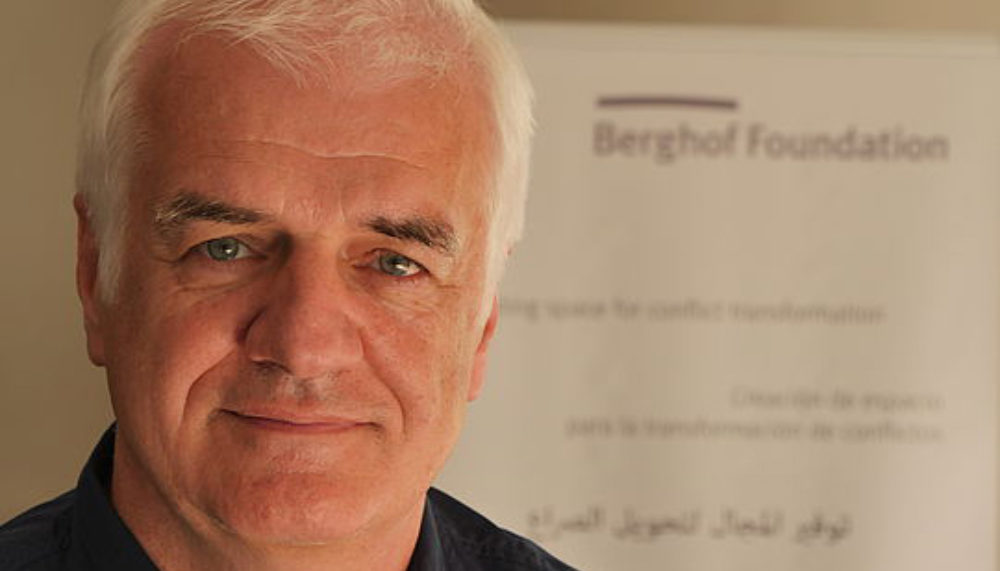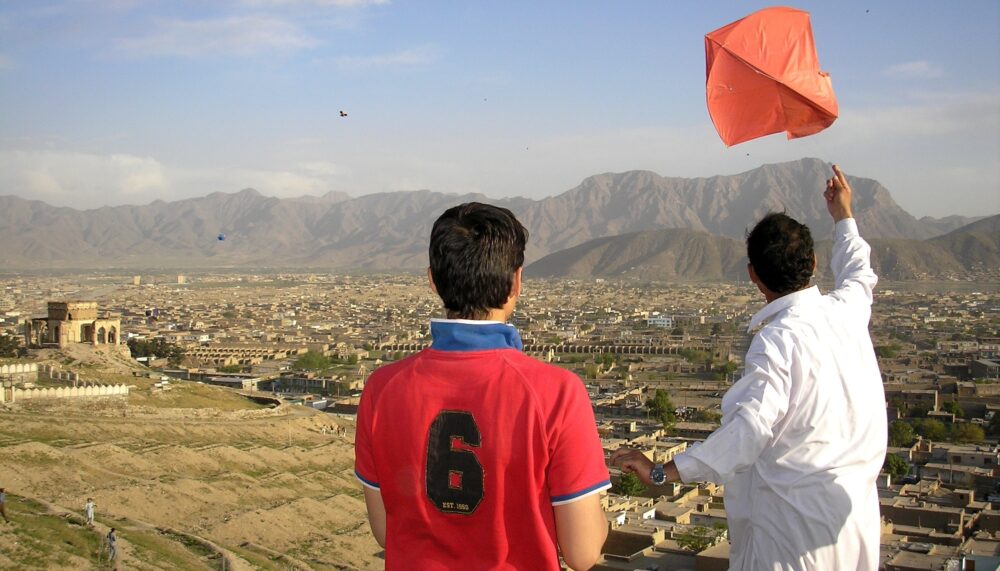BLOG POST | 15 May 2019
Thoughts on Ramadan 2019 – Will there soon be peace in Afghanistan?

On 6 May, the annual fasting month of Ramadan has begun for Muslims around the world.
By Hans-Joachim Giessmann
On 6 May, the annual fasting month of Ramadan has begun for Muslims around the world. Actually a time for inner contemplation and peace, peace does not prevail everywhere these days, especially not in Afghanistan. With few, short interruptions, Afghanistan is already in its 40th year of war. Two generations of young Afghans know nothing but war as the "normal state".
More than 3,800 civilians were killed in 2018, eleven per cent more than in 2017, according to figures by UNAMA, the UN-Mission to Afghanistan. Almost 7,200 civilians were injured, two per cent more than the year before. What currently allows for hope are the negotiations between delegations of the US government and the Taliban, which have been going on for several months, as well as the accompanying shuttle diplomacy in changing setups involving the United Nations, the EU, China, Russia, and other states - including Germany.
For years, Germany has made its own political, economic and military contributions to international efforts that support a peace process in Afghanistan. Since 2001, Germany has invested more than EUR 16 billion in contributions to the promotion of the rule of law, economic development, and to education and vocational training, especially for girls and women.
The mandate given by the German Bundestag in December 2014 to participate in the NATO-led support and training mission "Resolute Support" was extended for another year this March. This means that Germany is entitled to deploy up to 1,300 soldiers to advise, train and support the Afghan National Defence and Security Forces. Since 2001, 58 members of the Bundeswehr and three police officers have lost their lives during their deployment in Afghanistan.
Yet despite all efforts to strengthen national security, the situation remains precarious at present: Some parts of Afghanistan's territory are not government-controlled. Even highly secured cities such as Kabul experience attacks. The spring offensive recently announced by the Taliban has led to a renewed intensification of hostilities – in spite of the ongoing negotiations and talks to end the war.
Nevertheless, at no time in the past four decades have the chances of peace through dialogue and negotiation been greater than in these months. For the first time, negotiations and talks about ways to end the complicated conflict are taking place simultaneously at different levels and with the participation of the most important political actors.
There will only be peace in Afghanistan if the Afghans themselves take over the reins of action.
The hope: On all sides, with the exception of the Islamic State, readiness was expressed to make a serious attempt at reaching peace through dialogue and negotiations and to reduce the need for an international military presence, before finally eliminating it.
The expectation: All sides want to influence the outcome of negotiations in their favour, at the very least not suffer unilateral disadvantages.
The problem: The respective priority interests of the parties involved in the conflict as well as of the international actors differ greatly from one another beyond the generally expressed willingness for peace and negotiations. Some international actors see Afghanistan as the trump card of their geopolitical competition, while others strive for regional dominance or one-sided economic advantages. In addition, Afghanistan's political and social forces are also at odds. They are often divided along ethnic, tribal, territorial or religious lines.
According to international indicators, Afghanistan remains one of the least developed countries (ranked 168 out of 189 in the Human Development Index), and is at the same perceived to be one of the most corrupt countries (ranked 172 out of 180 in Transparency International’s Corruption Perceptions Index). After decades of disputes over power and profit, mistrust is widespread and political elites and institutions are unable to guarantee the rule of law, economic well-being and political participation for all.
However, it remains undisputed that neither will a continued war lead to peace, nor will attempts to outwit one side by another create the conditions necessary to overcome the deep rifts between the parties. Peace will only be possible if enmities are turned into constructive cooperation, claims to sole representation into fair participation, and privileges for some into rights for all. It is obvious that all this will ultimately be difficult to achieve as an outcome of negotiations. It requires the development of a common vision for the future of Afghanistan and a common learning process for all participants in the peace process to resolve conflicts peacefully on the way to its implementation.

There will only be peace in Afghanistan if the Afghans themselves take over the reins of action. In my own experience, support from international actors is welcome on all sides, provided it is strengthening self-responsibility and helps the Afghans to help themselves in the search for viable compromises.
A year ago, in June 2018, during a three-day ceasefire on the occasion of the Eid al-Fitr fast-breaking, hopeful gestures of possible reconciliation between Taliban fighters and the civilian population were visible in many Afghan cities. The brief silence of the weapons was proof that reconciliation between political leaders, Taliban fighters and civilians is possible: Security can be negotiated successfully provided all sides really want it. Strengthening security can foster trust. Mutual trust can lead to more cooperation and eventually to peace. The memory of this sign of hope should encourage the Afghan conflict parties to vigorously seize the opportunities for dialogue and negotiations.
The Consultative Peace Loya Jirga that took place two weeks ago was an important step on this path. 3383 delegates - one third of them women - from almost all districts of Afghanistan, participated in discussions and adopted a declaration with concrete proposals towards peace. An intra-Afghan dialogue that includes all actors, including those who were missing in the Loya Jirga, will show if this declaration can eventually lead to a full-scale consensus.
I would like to wish all Muslims, and especially my Afghan friends, a peaceful and happy time. Ramadan Mubarak.
Media contact
You can reach the press team at:
+49 (0) 177 7052758
email hidden; JavaScript is required


